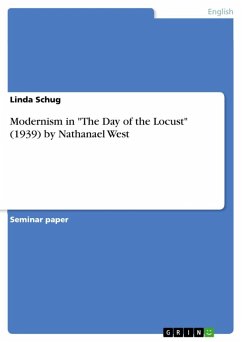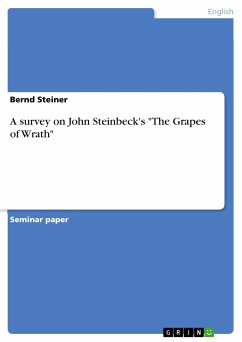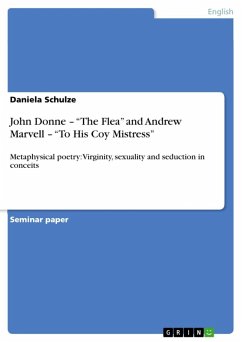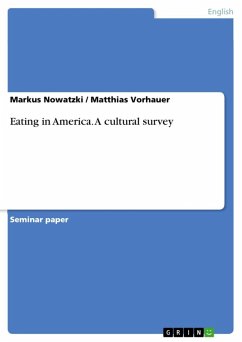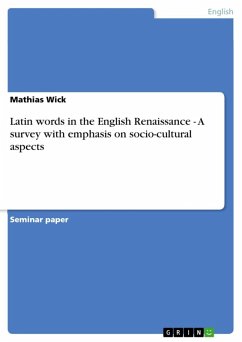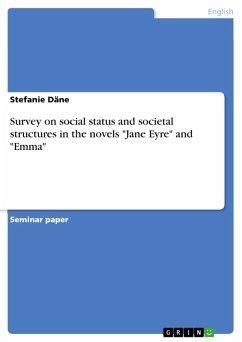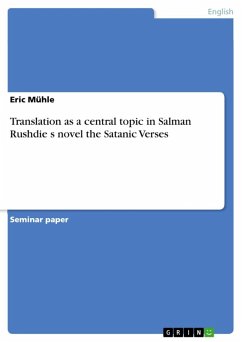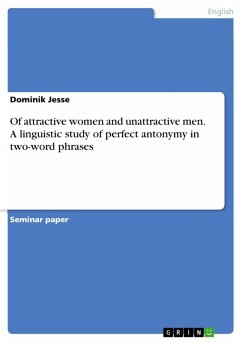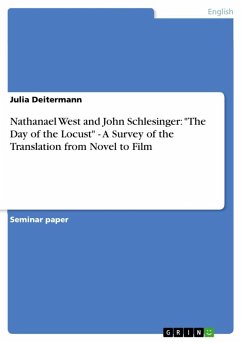
Nathanael West and John Schlesinger: "The Day of the Locust" - A Survey of the Translation from Novel to Film (eBook, ePUB)

PAYBACK Punkte
0 °P sammeln!
Seminar paper from the year 2001 in the subject American Studies - Comparative Literature, grade: 1,3, University of Augsburg (Lehrstuhl für Amerikanistik), course: Proseminar: Novels of the American Modernism, language: English, abstract: Although Nathanael West's novel The Day of the Locust did not receive much attention when published in 1939, it is today considered one of the best and most revealing novels about Hollywood. Its reviews are outstanding and it has therefore become one of the landmarks in American writing. The Day of the Locust demonstrates the fragility of the American Dream...
Seminar paper from the year 2001 in the subject American Studies - Comparative Literature, grade: 1,3, University of Augsburg (Lehrstuhl für Amerikanistik), course: Proseminar: Novels of the American Modernism, language: English, abstract: Although Nathanael West's novel The Day of the Locust did not receive much attention when published in 1939, it is today considered one of the best and most revealing novels about Hollywood. Its reviews are outstanding and it has therefore become one of the landmarks in American writing. The Day of the Locust demonstrates the fragility of the American Dream and presents it from various perspectives. It points out the cruel world of film industry using devices of irony and satire. Therefore it resembles a "nightmare vision of humanity destroyed by its obsession with film". West took the title of the novel from the Bible. In Revelation, people turn into locusts in order to follow their aim of destroying the whole world. They do not kill immediately, though, but only sting and hurt in order to let their victims die slowly. These locusts can be compared to the film industry in Hollywood which also exploits and slowly kills its people. Besides, in the Bible Jeremiah prophesies a necessary ending of the world which ought to lead mankind to a new life and a rebirth. In the novel, this image is taken up again. This aspect will be thoroughly discussed later, though. The concept of apocalypse can be found throughout the novel and beside violence and decadence, the devaluation of love is a prominent theme, too. West illustrates the moral decay of characters on the fringe of the entertainment industry, that are Homer Simpson, Faye Greener and Tod Hackett. Each character has come to California seeking fame or health in the shining city Los Angeles, and each suffers from his or her own history of desperation and shattered dreams. Producers had already thought about turning West's novel into a film in the early 1950's. As they feared that most of the satirical view would get lost, however, the film was not shot until 1974, when the famous director John Schlesinger committed himself to the adaptation. [...] This survey focuses on the translation from novel to film, compares and contrasts differences, and reveals the different perspectives of the characters. Furthermore, it will both examine the use of film techniques in Schlesinger's adaptation and the meaning of symbolism in the film. Last but not least, a few commonly invoked critical viewpoints of the film will be discussed.
Dieser Download kann aus rechtlichen Gründen nur mit Rechnungsadresse in A, B, BG, CY, CZ, D, DK, EW, E, FIN, F, GR, HR, H, IRL, I, LT, L, LR, M, NL, PL, P, R, S, SLO, SK ausgeliefert werden.




